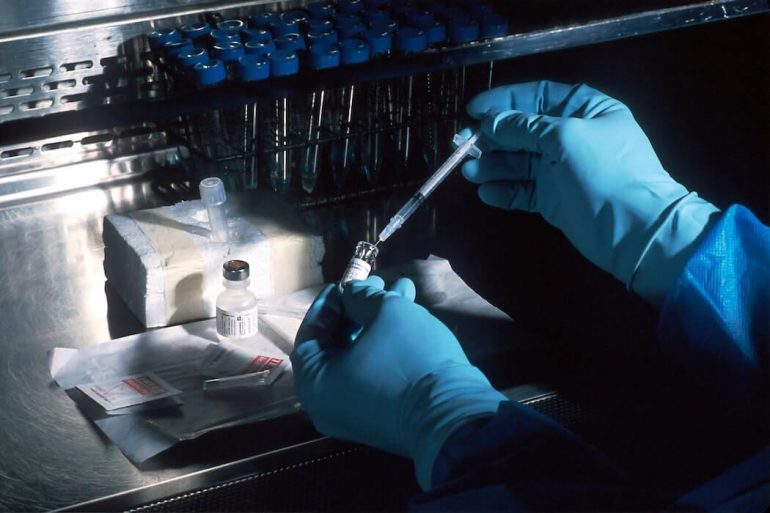Housed in Montréal’s renowned Mila artificial intelligence (AI) research institute, AI startup Valence Discovery recently came out of stealth mode earlier this year and announced $10.9 million CAD ($8.5 million USD) in funding.
The startup partners with leading pharmaceutical and biotech companies, using AI and machine learning to support their drug discovery efforts.
Co-founder Daniel Cohen said Valence is using next-generation AI methods to “build the world’s most powerful chemistry engine,” and compares formulating new drugs to solving a complicated Rubik’s Cube.
Valence Discovery intends to use the money to build out its team, and expand the development of its platform.
“In the same way that solving one side of a Rubik’s Cube often comes at the expense of another” it’s often possible to solve one problem in drug discovery, only to have a new one crop up.
Fifty Years and Air Street Capital led the oversubscribed round with participation from Amplitude Ventures, Phoenix Venture Partners, and Abcam founder and former CEO, Jonathan Milner.
Of the funding, $9 million is recently secured seed capital while $1.9 million was pre-seed financing raised some 18 months previously, and not announced or disclosed.
Cohen noted that drug molecules possess complex sets of properties ranging from efficacy to toxicity, to permeability.
Cohen explained that “in the same way that solving one side of a Rubik’s Cube often comes at the expense of another” it’s often possible to solve one problem in drug discovery, only to have a new one crop up.
Valence uses machine learning to simultaneously optimize all of the properties in a drug molecule.
“It’s using these next-generation deep learning techniques to very rapidly and efficiently design drug molecules that are optimized for all these different potencies – selectivity, safety, toxicity – that we’d otherwise have to address … with time-consuming and infrastructure intensive processes in the lab,” Cohen said.
Valence works across diverse areas within biology and chemistry, particularly in the areas of oncology and neurology because of current ongoing partnerships. For instance, in March, Valence partnered with Repare Therapeutics.
Repare describes itself as a clinical-stage precision oncology company. The company uses its proprietary platform to “discover and develop highly targeted cancer therapies focused on genomic instability, including DNA damage repair.”
Valence is assisting Repare in the design of new oncology medicines.
Along with the current round of funding, Valence is gaining two new board members. Seth Bannon, a founding partner at Fifty Years, and Nathan Benaich, general partner at Air Street Capital.
According to Cohen, Bannon brings experience scaling early-stage companies, along with a deep network of founders and advisors. Benaich is trained in AI as a scientist and his expertise is the use of AI applied to problems in biology and chemistry.
RELATED: Biotech startup Phenomic AI raises $7.97 million CAD to identify promising cancer drugs
The founder of Mila, deep learning pioneer Yoshua Bengio, is also an advisor to Valence. Bengio is active in helping build Canadian AI startups, most recently investing in Armilla AI in October, when that startup launched with $1.5 million in pre-seed funding, with the aim of ferreting out and correcting biased AI. Bengio joined AI startup Botler as a strategy advisor in 2017, and was a co-founder of Element AI, which ServiceNow acquired for approximately $230 million USD in January.
Valence was founded in 2018, and has since grown to a team of 12 people. Over the next few months, Valence wants to expand to 24 employees, adding expertise in computational medical chemistry, drug discovery biology, machine learning, and engineering.
Valence is entering a space that already has some sophisticated startups working in it. Deep Genomics secured $226 million CAD in July, as the startup increased the number of drug candidates it has discovered using AI and moved toward clinical trials.
SoftBank Vision Fund 2 led the financing that marked one of the largest rounds raised by a Canadian artificial intelligence startup, putting Deep Genomics alongside the likes of Element AI and Clio. The round in July brought Deep Genomics’ total funding to date to around $302 million CAD.
Other startups in the area include Atomwise, from the University of Toronto’s incubator, and United Kingdom-based Exscientia, which also recently secured financing from SoftBank as part of a $525 million USD deal. The field also includes Google subsidiary DeepMind, which has developed software that generates 3D models of proteins.
Nonetheless, Benaich had high praise for Valence. “We have been paying close attention to AI-first drug design for several years now, carefully studying the research as it’s published and reviewing a large number of investment opportunities in the space,” he said.
“Valence has already established itself as a next-generation leader in the AI-first retooling of drug discovery—arguably one of the largest opportunities in the industry,” Benaich added. “The company approaches drug design with technical ingenuity and operational pragmatism in a way that is clearly resonating with category-leading pharma and biotech collaborators.”
Correction (01/19/22): An earlier version of this article misstated Yoshua Bengio’s role with Botler. He joined in 2017 as a strategy advisor, not a strategic investor. BetaKit regrets the error.


